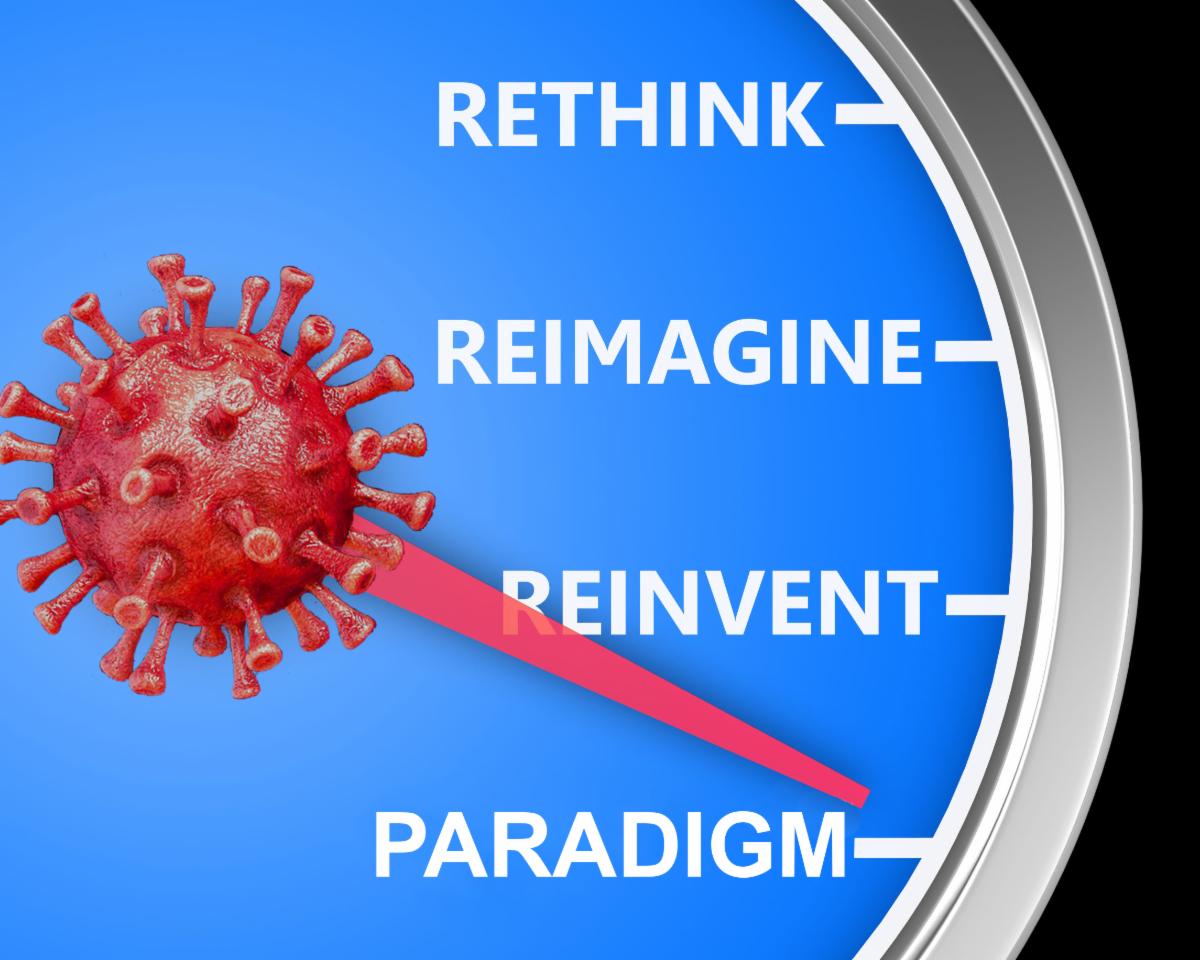
This is the second column in my “New Regular” series (“normal” checked out in February). The focus is on how familiar, pre-pandemic customer relationships are likely to morph into less familiar post-pandemic customer behavior and expectations.
You’ll hear those twin-terms – pre- and post-pandemic – more and more, perhaps for the rest of your life. Like December 7, 1941, the date that lives in infamy as it marked a global generation, the events of 2020 will bisect memories and lives for decades.
In thinking of that pre/post bisect, another book comes to mind: Paradigms: The Business of Discovering the Future by my friend Joel Barker, one of the great futurists of our time. Joel didn’t invent the paradigm concept, but his landmark book and companion film reestablished it in our modern consciousness.
Barker: “A paradigm is a set of rules – written or unwritten – that establishes boundaries within which we learn how to be successful.”
The marketplace is pregnant with paradigms – almost infinite in number and most of them handy. Some paradigms are fundamental and as old as human interaction, like the handshake, or the business paradigm: buy low, sell high, keep track. And some were born this morning – we’ll get to those in a minute.
So, how does it work to have so many paradigms? It doesn’t always – and there’s the rub. Few paradigms last forever, even our most beloved ones, like what we sell and how we sell it. When the life of a paradigm is spent, it almost never dissolves, erodes, or atrophies. It shifts. And when a paradigm shifts, Barker says, “… everything goes back to zero.” Zero is another word for irrelevant.
As we pass through this mid-pandemic wormhole into whatever is next, that bisect will shift paradigms all around us. “Back to zero” is the New Regular reality every business owner should overlay on whatever they did and how they did it, pre-pandemic. And then ask the team, “How is what we know and love shifting? Will the product/process/practice we used last February still be relevant post-pandemic – as in tomorrow, or next February?”
You’re the expert on your precious paradigms, but allow me to identify two examples to watch on the poles of the New Regular’s paradigm-shifting spectrum:
Tiny Shifts – there will be many
Granular service and operating paradigms will shift because of changes in customer behavior and new expectations. Expect rude shifts in many of the nostalgic ways you love serving customers and the way they once loved being served.
Early in the New Regular, tiny paradigms will shift daily, so staying relevant means staying close to customers. Watch, ask, listen, and confirm what looks different. Tiny paradigm shifts require tiny adjustments – make them fast and often. When tiny paradigms are shifting, perfect is not your friend.
A Major Shift – Where/how we work
Decades before it was cool, I was a remote worker when my technology was an Underwood 5 manual typewriter and carbon paper. In 1989, I started my business from home with a Macintosh and a Hayes modem dial-up to nowhere. But even after thirty years of digital innovations making remote-working easy and productive, giant cranes continued to erect giant office buildings.
Then, in little more than a fortnight, politicians responded to a deadly virus by mandating that we abandon our not-so-beloved commutes and work from our beloved homes. As we watch in real time, the commercial office paradigm is now shifting in global proportions. And the energy driving this shift comes from two associated paradigms – management and money.
Management: In conversations with CEOs of firms (including outside the U.S.) with dozens to hundreds of employees – all working remotely, HQ now abandoned – the productivity is surprising them. Indeed, some say it’s better. Hidebound managers who once would have had to be netted and tranquilized to allow people to work from home, now acknowledge that the alloying of a pandemic shutdown with digital innovations has rendered their former practices impractical.
Money: In mid-pandemic C-Suites everywhere, hearing a chorus of crickets and shifting paradigms, those same managers have discovered a post-pandemic potential windfall within the physical plant line-items on their operating statements. This is an exact quote, and it’s the sound of a tectonic paradigm shift: “Tell me again why I’m spending $5 million a year in rent?” You can remove the net now.
The combination of newly discovered remote-work productivity with the potential for found money will shift periodic remote-working as a perk into a default employment practice. No global paradigm has ever shifted with such velocity and drama that you can watch, as if it were a ten-week mini-series. And the title of that show is: “Back to Zero.”
The following essay question will be on the test for every business – B2B and B2C: As remote working becomes a pervasive and default practice across the marketplace, what adjustments will you have to make to connect with, serve, deliver to, and maintain a relevant business relationship with customers?
Our response to the novel coronavirus is bisecting the marketplace with paradigm shifts, tiny and not so much. How you did business pre-pandemic is now in the rear-view mirror. In the windshield are these alternatives: You’ll either ride familiar and beloved paradigms into irrelevance (zero) or make the shift and find relevance with new paradigms – in the New Regular.
Write this on a rock … When a paradigm shifts, everything goes back to zero.
